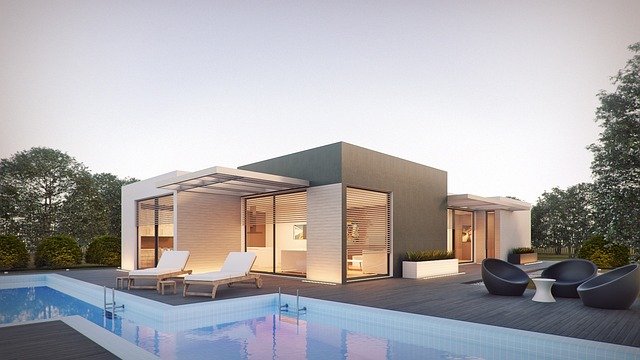Energy-efficient or energetically efficient house – a concept we often hear about. When the conversation turns to new constructions, we see real estate project advertisements or read articles about heating, and this topic always gets attention. However, not everyone knows what energetically efficient construction is, what the advantages of such a building are, why it’s relevant at all, and how to construct such a building. Let’s review everything that should be important to know.
What lies behind the concept of an energy-efficient house?
An energy-saving or energy-efficient, also known as a passive, house is designed to use as little energy as possible for heating, cooling, and hot water. This set of features didn’t arise by chance. New houses must comply with EU regulations aimed at reducing energy consumption and promoting sustainability.
From January 2021, all new buildings constructed in EU member states must use little or no energy for heating, cooling, and preparing hot water. How is this monitored? Through specific EU directives, which also regulate how Ireland institutions assess building energy certification. For a building to be inhabitable or usable, it must receive an appropriate assessment (a certificate after delivery). What does this include? Energy Performance of Buildings – Design and Certification,’ but here is a summarized overview to make it easier for you to find an answer:
- Insulation. Construction must be done only with the highest quality insulation in walls, roofs, and floors to reduce heat loss.
- Energy-saving windows. Double or triple glazed units reduce heat loss, with a requirement for a 0.8 U value.
- Renewable energy sources. Solar modules, wind or geothermal energy – the best-known solutions. An A++ house cannot have a gas boiler, other polluting heating solutions, and over 50% of all energy must come from non-polluting sources.
- Smart technology. Automated systems for increasing energy use efficiency are considered a big advantage.
- Sustainable materials. A preference for ecological and recyclable materials in construction.
These regulations are part of the EU’s goal to reduce pollution and use energy from renewable sources, aiming for nearly all EU member states’ buildings to use almost no energy by 2050.”
For more detailed information on energy-efficient building standards and practices, especially in the context of EU regulations, it’s advisable to refer to specific architectural and environmental sustainability resources.
An energy-efficient house is warm and cozy. Heating costs are lower in the winter, the risk of mold formation is less, and it also has adequate ventilation, ensuring top-level comfort. Let’s review how an energy-efficient house is built.
How to build an energy-efficient house and save energy?
It all starts with choosing the right location on the site. The house should receive as much sun and warmth as possible. Additionally, don’t forget about the roof orientation. After all, you might want to install solar collectors on it, which cannot be directed only north. Hence, project supervision or passing tasks to professionals is needed before starting construction.
When building, always prioritize high-quality materials with the best possible insulation. The old wisdom that the miser pays twice really pays off here.
Do not skimp on investments in windows and doors. The better they retain heat and the more flexible their opening is controlled, the more comfort you will get, and the lower heating expenses will be.
From the very beginning, think about installing solar collectors, a heat pump with a high COP, geothermal heating, batteries for storing solar energy, and more. This will ensure maximum comfort all year round and meet the home’s needs for electricity or heating/cooling much cheaper.
Energy-efficient homes do not necessarily have to cost hundreds of thousands or millions. If you choose modular – SIP panel construction, you can move into cozy, warm, and very energy-efficient houses in a couple of months, designed entirely according to your ideas. This is an especially attractive solution for those building a guest house, rental property (as an investment), or a summer house somewhere in the countryside.
For more detailed information on building energy-efficient homes, consulting construction experts and reading materials on sustainable building practices would be helpful.
